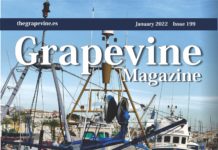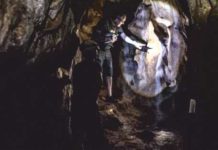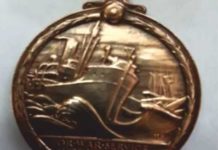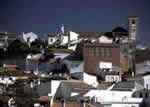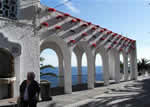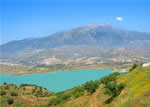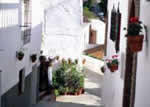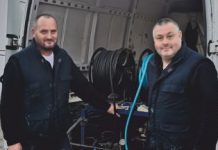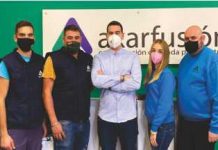First-Aid training is an invaluable skill especially CPR (Cardio Pulmonary Resuscitation), as almost anyone anywhere could suffer from an SCA (Sudden Cardiac Arrest) or heart-attack, which is a situation that may occur for many reasons, most commonly from a form of heart disease, however even seemingly healthy people even young people can have an SCA. Common causes may also include; being overweight / obese, exertion or exercise and even stress!
In many cases there is a chance of survival, which can be increased by the fastest possible response for help, activation of local EMS “Emergency Service” protocols, i.e. calling for an ambulance and the administration of CPR. If possible, with the aid of an AED (Auto External Defibrillator / in Spanish a “DEA”) many villages now have them in public places and some minimal training is required to use one effectively, with the additional aid of CPR as well.
What Happens in a Cardiac Arrest?
Everyone should know CPR and be able to perform it, to at least a basic life-saving exercise, the process is very simple. Your heart is a pump which pumps oxygen from the lungs and nutrients from food (which produce energy) around the body to all your cells which require oxygen to perform normal functions, it also pumps the waste products, including carbon dioxide back from the cells in the
bloodstream to be expelled from the lungs and other body parts.
When we perform CPR, we are simply taking over the function of the heart and manually acting as a pump until medical help can arrive, this process can buy valuable time, especially if it happens in a remote area like the Campo or a town/village without an ambulance service or hospital/clinic. The additional help of an AED unit can really make a difference, in literally “restarting the heart” pumping with an electric shock.
In many villages and towns AED/DEA units are available and there should be a very clear protocol for using them in an emergency, with a list of trained people and contact details published by the town hall or local authority.
IHMP (International Hyperbaric Medical Programs) are a specialist Medical and First-Aid training division as a part of ITDA Group International Inc. Ltd, In Spain they are the “ITDA Agencia de Buceo S.L.” based in Competa. The First-Aid trainer is Steve Craig-Murray, who is an ex-EMT-P (Paramedic trainer) and a Global Trainer / Assessor for the AREMT (Australasian Registry of Emergency Medical Technicians), he is also a specialist in Diving, Trauma/ Emergency care / First-Response and Hyperbaric Medicine and a member of both the ERC (European Resuscitation Council) and the UK ERC. He has been training medics and diving instructors for over twenty (20) years. In 19 Countries and has consulted in training for federal Fire and emergency response bodies in Malaysia and Singapore.
Steve is now running CPR First-Aid and other related courses from the training site in Competa, Avenida de Constitucion 2A. II (next to Schmid and above the tourist office) please contact him for course details and to make bookings, as places are limited to a maximum of 8 people, minimum of 4. CPR Courses run every other week, class is around 3 hours with theory and practice on a manikin (x2 per month, unless otherwise needed) The CPR Course is valid for 2 years and includes a Certificate to ERC Standards for just €35.00 euros. We are also open to interest from businesses who would like training.
Other courses include: BLS Basic Life Support, AED/DEA First-Aid, Oxygen First-Aid, First-Response (CPR/BLS together), Sports Injuries First-Aid (For anyone involved in sports, with specialist programs for Martial-Arts, Football etc. etc.) and First-Aid Instructor Training for Sports Instructors, Teachers, Trainers, and Coaches anyone who can train or teach… Also, First-Aid Trainer Programs to train instructors. REMEMBER YOU COULD SAVE A LIFE!
www.ihmp.eu – stevecm@diveitda.com
Tel. 693 009 636
See advert Opposite



